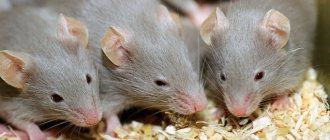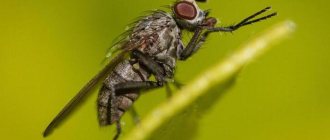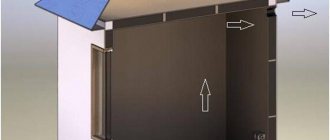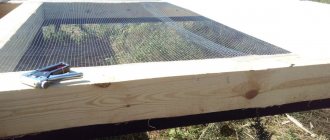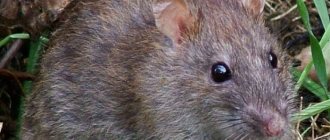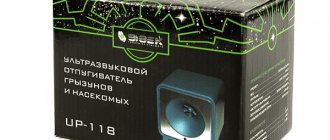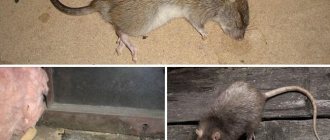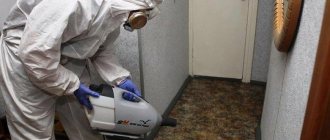Ways to drive out mice
In order not to face the problem of eliminating the smell of a dead mouse under the floor, it is best to try to get rid of rodents in advance, as soon as signs of their vital activity are noticed. There are many ways to do this, both with the help of folk remedies and with the involvement of professionals.
Mousetraps
Mousetraps come in a variety of designs. Bait is placed inside, which is changed periodically, after which the trap is placed in the place where the mouse droppings were found. The disadvantage of mousetraps is that they provide only a single catch, without helping to massively solve the problem in the case of a large number of pests.
Poisons can help get rid of an entire mouse population. The poison is placed in a place accessible to mice, but inaccessible to pets and children, and left for some time. The disadvantage of mouse baiting is that the carcasses must be collected for disposal, and some rodents may end up in inaccessible areas. In addition, with this method of disposal, cats often suffer because they catch and eat poisoned prey.
Deratization service
Deratization specialists get rid of rodents using mechanical, biological, and chemical methods. The issues of deratization in urban apartment buildings are dealt with by the housing office and housing cooperatives; the need to carry out treatment against rodents can be reported to the SES and Rospotrebnadzor. To exterminate mice in a village or country house, they turn to the services of private companies.
Ultrasound
Ultrasonic repellers are one of the most modern methods of rodent control. The principle of operation of the device is based on the fact that it constantly emits ultrasound of a certain frequency, which is not perceived by the human ear, but causes great discomfort to mice and rats. Animals themselves leave the room in which the repeller is installed, obeying the instinct of self-preservation.
What you need to know about prevention?
It is already known that preventing problems is much easier than solving them. To avoid troubles with the appearance of the characteristic stench from rodents, it is recommended to periodically take effective preventive measures:
Do general cleaning throughout the house as often as possible;
- Wash hard-to-reach corners with solutions of peroxide, manganese or vinegar (the components are proportionally diluted with water at room temperature);
- Ventilate the apartment, as rodents do not like temperature changes, drafts and wind;
- In conditions of high humidity, regularly ventilate the blanket and pillow;
- It is advisable to have a cat (the animal may not catch a mouse, but the smell of a cat is completely unbearable for a rodent);
- It is not advisable to use aerosols to bait pests; it is better to make baits or special traps.
If you follow all the above points, you will not have to worry about how to get rid of mice. Make it a habit to clean your room periodically to always keep your room sanitary. It is extremely important to follow all the existing points exactly when you have just treated pests in the apartment.
How to get rid of mouse odor?
What does the mouse smell smell like, where does this specific “amber” come from? There are several reasons:
- the smell from the mouse itself;
- the male marks the territory to attract the attention of the female;
- mouse smell of urine and excrement.
Mouse droppings
The smell is pungent, it is literally absorbed into surfaces, so simple ventilation will not help. We need more radical means that can, if not completely destroy, then at least make this smell less noticeable. There are several ways to help remove mouse odor:
Vinegar is a natural source of disinfection. It not only neutralizes odors, but also destroys pathogens. In 1l. 5 tbsp of water is added. concentrated vinegar. The solution is mixed. Using a sprayer, we treat secluded corners, places where rodents have been seen, and wooden surfaces.
- Chlorine is a substance that “knows” how to get rid of the smell of mice in a private home. “Belizna” is most often used as a chlorine-containing solution. Take 300 ml of “Whiteness” per 5 liter. H2O. Using a sponge, wipe all suspicious surfaces, corners, and places where pests could be located.
- If you are not sure that the room is sterile, then you can clean it with hydrogen peroxide. It will complete what it started: it will destroy the microbes that remain alive after chlorination.
To prevent clothes from smelling like mice
There are ways to remove mouse smell from clothes. You need to dilute the composition: hydrogen peroxide and water in a ratio of 1:6. It is used for soaking things and fabrics. If you increase the concentration, you can damage the material. But even such proportions are unsafe for thin fabrics.
We immerse the “fragrant” things in the prepared product for a couple of hours. We remove it, load it into the washing machine and wash it as usual. The smell will disappear for a long time.
If furniture, carpets and blankets come in contact with mouse urine, clean them with detergents. If the fabric is removed (covers, bedspreads), then wash it thoroughly and dry it in the fresh air. Carpets can be cleaned well using a washing vacuum cleaner. It is advisable to dry-clean winter items.
May be useful - How to get rid of the smell after baiting bedbugs in an apartment
Folk methods will come to the rescue
Now let's move on to the question of how to get rid of the smell of mice in the house using folk remedies. You can use peppermint oil. Mice don't even come close when they smell this scent.
Previously, peppermint oil was made independently, today you can buy it at the pharmacy:
- add a few drops of oil to a cotton ball;
- balls need to be placed in places where mice visit;
- be sure to place a few near the trash can;
- place it in places through which rodents enter the house;
- You need to change it after 5-7 days, because... the smell disappears.
You can use snake feces. It is not difficult to obtain this exotic product at your local terrarium or pet store. Place them at the intersections of mouse paths. But make sure that they do not fall into the hands of children or pets. Mice, sensing the enemy's scent, will disappear.
The cat knows exactly how to get rid of the mouse smell. A cat that is allowed outside will not mind hunting for mice and even playing with the trophy. But the animal must be young and active. There are sedentary cat breeds that are not capable of “feats.”
It would be nice to involve birds of prey in the hunt. Place birdhouses in your garden to keep birds on your property. For example, the barn owl, a bird of prey, eats several mice per night. And with a “family contract” even more.
Mice should not settle in the house: prevention
In order not to think later about how to get rid of the mouse smell in the house, you can take a number of preventive measures in advance:
- Do general cleaning regularly, use vinegar, peroxide or potassium permanganate in hard-to-reach places. Mice don't like cleanliness.
- Ventilate the rooms, create drafts. Tailed pests do not like drafts.
- Dry and take blankets, soft toys, and pillows out into the fresh air.
- Bring a cat into the house. Even if he is lazy, the mice will still smell the animal. Do not use chemical aerosols again, rodents get used to them, and you can get poisoned. All in your hands. And if you are determined to get rid of mice and unpleasant odors, then go ahead. After all, there are a great many methods that can be used, if you would like...
How to find the source of the odor
Each option for dealing with mice has its pros and cons. The use of poisons and mousetraps is not humane and can harm pets and children. In addition, the poisoned rodent is forced into hard-to-reach places and dies there. After this, his corpse begins to decompose and emit a terrible stench. And finding a dead mouse is not always easy.
Residents of private houses are often puzzled by how to get rid of the smell if a mouse has died under the floor. This often happens after using poisonous baits. In this case, it is advisable to find the body of the pest by opening the floor boards. If this is not possible, treating the surfaces with a solution of nine percent vinegar and water may help. This product neutralizes the smell of a dead mouse and kills bacteria.
If a mouse has died in the wall, you should cover all the cracks between the ceilings and also treat the surfaces with a solution of vinegar or other disinfectant.
On a note!
In cases where it is impossible to understand where the rodent died, the owners of the premises are interested in the question: how long does a dead mouse stink. Typically, the stinky odor can last for three to six months.
The first signs of mice appearing in the house
The most suitable place where mice begin to settle is basements. From here they begin their vigorous, prolific activity. Having good abilities, rodents are able to adapt to changing conditions, reproduce quickly, and spread over large areas. Animals especially like cluttered rooms where there is something to eat. They are able to migrate and enter houses and city apartments through sewer hatches, ventilation shafts, and garbage chutes. Harmless creatures at first glance, mice cause a lot of harm to human health and property.
How to spot unwanted pests
Small pests are active during the cold seasons. In the autumn, when the gardens are harvested, the first frosts begin on the ground, small rodents move closer to food and warmth. You can determine that guests have arrived by the following characteristic signs:
- the appearance of cracks, holes in the area of the baseboards or near the walls;
- mouse droppings in the form of small round pellets, without a pronounced odor;
- extraneous sounds, grinding, squeaking, rustling in the walls, especially at night;
- strange, aggressive behavior of domestic animals, in particular cats;
- spoiled, chewed food, bitten packages of cereals, flour;
- the presence of a specific mouse odor.
If at least one of the signs occurs, then it’s time to begin active rodent control. Where one mouse was caught, there is certainly a fellow mouse nearby, so extermination should be approached comprehensively. The reasons for getting rid of mice are quite serious, because they cause irreparable harm to human life:
- mice can be carriers of bedbugs and fleas;
- damage furniture, wiring, walls and other property in the house;
- mice can act as carriers of severe infectious diseases and viruses;
- are a source of unpleasant odor in the room, which is difficult to remove.
Mice in the house or how to get them out of your home forever
To get rid of a dubious neighborhood forever, it is worth taking a number of measures that will help avoid the presence of pests in the future. Effective control methods include:
- General cleaning, when you need to thoroughly treat all surfaces of furniture, floors, and walls using a detergent that contains chlorine.
- Inspect the room for holes and mouse holes. Especially in the bathroom, in the kitchen, where it is always warm and there is food. Detected holes must be sealed with construction foam or other available means.
- Install traps or modern ultrasonic repellers. But mice adapt quite quickly to different conditions, so the effect of an ultrasonic repeller may be ineffective if additional preventive measures are not used.
- Folk methods have not been canceled; it is worth using them as additional measures in the fight against mice. Rodents cannot tolerate the strong aromas of wormwood, tansy, lemon balm, and citrus, which means you can safely arrange bouquets of fresh or dried herbs indoors. You can also try placing pieces of cotton wool soaked in ammonia or vinegar around the house.
- Organic based repellents are much less harmful than poison traps. Such products do not destroy pests, but scare them away from your home. It is better to scare mice away from your home than to later fight them on your territory.
- Poisons and poisons are considered the most inhumane ways to control and destroy mice. But these are the most reliable methods. It is worth remembering that mice can die in hard-to-reach places, and then you will have to look for corpses and deal with the smells of decomposition.
- The most extreme method is to call a special pest control team, which will clean the premises at a professional level using modern approaches.
The main causes of unpleasant odor
Before choosing a method to get rid of the stench, you need to determine its source in the house. The causes of an unpleasant odor may be:
- dead pest located in a hard-to-reach place;
- the smell of mouse excrement, which contains ammonia;
- leftover food hidden by rodents in their hiding places.
First you need to get rid of the original source of the problem - mice. The most effective method of eliminating pests in an apartment or any other room is to get a cat. After a predator appears in the house, the rodents soon leave the home. Very often, owners take their cat with them in order to get rid of mice in the countryside. But this method is not acceptable for everyone. You can use other mouse repellents:
- ultrasonic repeller – affects animals with ultrasound, thereby giving them unpleasant sensations;
- use folk remedies - peppermint oil, potassium permanganate, tar, vinegar;
- mechanical traps - mousetraps;
- poison for mice, poisonous baits and preparations.
Why do mice appear in homes, and why are they dangerous?
House mice usually enter homes. They can settle in either a private house or an apartment. In the autumn, after harvesting from the fields, the vole mouse may move to nearby human settlements in search of food and shelter due to the onset of cold weather. Mice are attracted to warm, safe places where they can quickly get food and begin to reproduce.
First, the animals take a liking to basements and cellars, and then penetrate to the upper floors through ventilation lines, sewer pipes, garbage chutes, wooden floors, or settle under the roof. Pests can also enter the house when moving while transporting large items.
Rodents pose the following dangers:
- They spoil food;
- They damage furniture, household appliances, and walls of the home;
- They gnaw through wiring in hard-to-reach places, which can cause a short circuit or fire;
- They carry a variety of infectious diseases and fleas;
- They are collectors and carriers of radiation;
- They leave behind a pungent, unpleasant odor that is very difficult to remove.
Where does the smell of mice come from?
The formulation of this phrase may seem strange, because the smell of mice can only come from mice. However, not everything is so simple: the mice can leave, but the persistent smell will remain, and for a long time.
The strong smell of small rodents in the house appears for the following reasons:
- From the prolonged presence of mouse bodies in certain quantities. A mouse is a small animal. 1-2 individuals cannot give a home the specific smell of an abandoned, musty underground. In order for the residential part of the house to be saturated with the smell of mouse bodies, it is necessary for dozens of these animals to live in it. And yet, even 2-3 mice can give your apartment a special aroma.
- If mice constantly run around an apartment or house, then they are marking the territory that they consider theirs. These marks, of course, have a smell, by which the animals find their way back to their home, located somewhere in a secluded place. This smell is absorbed into the floor, walls, carpets, wallpaper, furniture and other objects that mice have chosen as an identification mark of their paths and territories.
- A strong smell usually comes from a dead mouse that has died from disease, died at the hands of a person, the claws of its worst enemy - a cat, the teeth of a rat, etc. There are many reasons for the death of a small rodent, but if it lies dead somewhere in a secluded place, then death itself will become revenge on a person for mistreating members of their tribe. The body of a mouse or rat will lie somewhere under the floor, in a wall opening, in the underground and poison people with the smell of a decomposing body.
- If mice settled in your house a long time ago, then during this time they certainly created families and multiplied. Mouse mothers are very caring and make good nests, placing soft material in them in the form of rags, paper, blades of grass, cotton wool, etc. All this is saturated with the smell of mouse bodies of several generations, delivering the aroma into human living quarters.
- Mouse excrement accumulates and contributes to the aroma of your home.
All these sources of specific aromas require special efforts and methods from a person to fight to preserve in his home the smell that he considers most acceptable for human homes.
Prevention measures
It is easier to prevent any problem than to get rid of it later:
- Prevent the appearance and reproduction of mice and rats in the house (apartment) and in the local area: get rid of garbage in a timely manner, keep trash cans and bins clean, store food (especially cereals, bread) in airtight containers.
- Check the walls and floor for cracks and repair problem areas in a timely manner.
- If you notice a rat or mouse, call extermination specialists or catch the rodents yourself, using traps and bait, but not poisons, which begin to act only after some time.
Mice are quite cute and cute animals, but in fact they are the most harmful rodents - carriers of dangerous infectious diseases. Mice can ruin people's property - equipment, furniture and clothing, but food supplies become the most vulnerable. But even this is not the worst thing - in a house where rodents have “settled”, a rather specific constant smell appears that eats into furniture and fabrics - the excrement and corpses of these animals emit an unpleasant stench, which cannot be gotten rid of by simple ventilation. As mice multiply, the smell in the apartment becomes unbearable, making it impossible to stay in the house for long. So what to do? Should I call pest control experts or try to deal with the problem myself? After all, even the complete destruction of rodents does not guarantee the disappearance of such a “flavor.”
Even if mice are not visible, this does not mean that they are not there. Their presence is usually “given away” by: excrement, which can be seen in secluded places; rustling and squeaking at night; the appearance of holes in baseboards or walls; nests in warm and fairly dry places, made from scraps of paper and scraps of rags. A characteristic unpleasant odor appears when the male rodent begins to mark his territory, attracting a female. This is a natural instinct that is inherent even in decorative mice kept in a cage - in this case, it is enough to clean the pet’s home more often - and the smell will practically not be felt. It’s more difficult with uninvited pests - without knowing the boundaries of their habitat, you will have to treat the entire room.
The second, more common reason for the appearance of smell in an apartment is the decomposition of the corpses of dead animals - for example, after baiting.
The chemical formula of the specific odor from mice consists of methane, hydrocarbons and sulfur dioxide. This amber is quite attractive to predators, but can cause a gag reflex in humans. It is simply impossible to get rid of the smell in the house until its source is found - a decomposing corpse or a nest with dead animals and their excrement. Typically, the likely locations of dead rodents and, accordingly, the source of the unpleasant odor are:
- kitchen cabinets (especially bottom drawers); baseboards and cracks in the floor;
- insect nests (for example: cockroaches);
- shafts and ventilation holes in walls;
- food storage places (especially bags and sacks of cereals, sugar or flour).
Finding the body of a dead rodent is difficult, but it is necessary to do so - if searches in usual places do not bring results, you can pay attention to any unusual spots in the apartment (the decomposition process is always accompanied by the release of a liquid that has a viscous consistency and a putrid odor). Most often, such spots attract insects that abundantly cover the area of decomposition. In addition, pets - cats or dogs - can unexpectedly help in such rather complex searches.
If they begin to constantly hover around a certain place, sniffing and getting irritated, then this is a sure sign that the source of the smell is “hidden” behind the baseboard or floor - a dead rodent.
Why is rodent odor dangerous?
The smell itself is quite unpleasant, but practically not dangerous.
. Of course, if a person suffers from allergic reactions to certain substances that make up the “aroma” of a rodent, then the constant presence of amber in the apartment can lead to quite serious consequences and even complications. In addition, this smell is so corrosive that untimely elimination, over time, leads to the fact that getting rid of it becomes almost impossible.
Prevention of mice
To avoid having to clean up mouse traces, you need to prevent the appearance of parasites in the house. An invasion of rodents into an apartment can occur in winter, during severe frosts, or in spring, when their holes in the soil begin to flood. An unpleasant smell in the kitchen table immediately reveals their presence. The easiest way to get rid of pests is to put a mousetrap there with a piece of lard or sausage. A single specimen will be quickly caught and eliminated.
Mice do not like strong smoke odors. You can scare away rodents with tar, Vishnevsky ointment, tar soap or a smoking preparation (liquid smoke). In outbuildings it is convenient to use pieces of felt or natural wool burnt over a fire.
Rodents rarely settle in a home where there is a cat or a domestic hedgehog. The smell of a natural enemy repels them. But the presence of decorative relatives of mice in the house can attract parasites to the apartment.
Household chemicals or how to get rid of mouse smell forever
However, the power of folk remedies is as poor as a church mouse, and in most cases it will only be possible to minimize and mask, rather than remove, the odor. The solution will be professional tools - household chemicals in the form of deodorizing and antibacterial solutions. They are classified as follows:
Absorbents for local elimination of stench. If the location of the dead rodents is known, you can add baking soda, salt or lime. This ensures surface disinfection and minimizes unpleasant odors.
Important: carbon-based absorbents will not help combat odors from rodents.
Chemical disinfectants in the form of an aerosol or concentrate for mixing with water. They contain formaldehyde, which is why they are dangerous to the health of any living beings - from newborns and pets to adult household members
May damage wood coverings and furniture.
Air ionizers. Devices that carry absorbents or chemical impurities throughout the room.
The pillar among the variety of products is the German product “Dufta”. And for good reason: it combines the high efficiency of chemical disinfectants with maximum health safety.
Fact: if after treatment the smell appears again, then this is a sign that the rodents have not left the house or apartment. All that remains is to return to deratization, seal all the cracks and repeat the procedures.
Folk remedies will help get rid of the smell of a dead mouse
When mice die under the floor, it is not necessary to go to the store and buy special expensive products. Time-tested folk remedies will help get rid of the pungent odor. The most effective ones are listed below.
Vinegar treatment
When you need to treat not only the floor, but also furniture, you should use nine percent table vinegar. This tool has several advantages. On the one hand, it allows you to effectively get rid of a specific odor, on the other hand, it will not harm home furnishings. Also, vinegar does not need to be washed off after application.
Potassium permanganate solution
In a situation where it is necessary to treat a dark-colored floor covering, you can use a weak solution of potassium permanganate. To prepare it, you need to dissolve three or four crystals of potassium permanganate in a liter of water. The pinkish liquid will not only help get rid of the smell of a dead mouse, but will also kill all pathogenic microorganisms.
Hydrogen peroxide treatment
If you have to wash light-colored surfaces on which a mouse has died, it is better to use the product available in every first aid kit - peroxide. To eliminate the unpleasant odor, you will need to generously pour active liquid onto the problem area. The next day the procedure will have to be repeated.
Chlorine treatment
If a mouse has recently died under the floor, and you need to get rid of the rather strong smell of decaying flesh, it is best to use caustic substances that contain chlorine. Such products can remove even the most corrosive odors. One of the most common chlorine-containing cleaners is Bleach. To get rid of the pungent smell with its help, you need to do the following:
- pour a liter of clean cool water and White into a small basin, and mix the ingredients thoroughly;
- thoroughly treat the floor, baseboards, and hard-to-reach places with the resulting liquid;
- leave the product for deep effects for three to four days;
- after the specified time - carry out general cleaning of the room.
Ventilation
If a mouse died under the floor in summer or spring, you can try to get rid of the intense odor by regular ventilation. To do this, you will need to open all the doors and windows wide, creating a real draft. The room should remain in this condition for at least a week. Of course, such a method is unlikely to be suitable for getting rid of mouse odor in your home. However, it can be used to clean a summer house or barn.
It is worth noting that if none of the remedies discussed above helped get rid of the cadaverous odor, you should contact a specialized organization that provides cleaning services. A professional will quickly find the place where the mouse died and eliminate all related problems.
Getting rid of mouse odor
Electric shock can cause the death of a rodent
Mice mark things, carpets, walls, floors, cabinets and other furniture to mark the boundaries of their territory and permanent routes of movement. When severely frightened, pheromones are released into the urine of animals; with their help, animals transmit danger signals to each other. In addition, the reasons for the appearance of a terrible aroma are the marks of males, the secretion of sweat glands of rodents, piles of excrement, the remains of animal fur, decomposing the bodies of dead mice.
It is possible to get rid of all the odors that accompany the presence of mice in a human home or apartment. For these purposes, special products are produced to remove the smell of mice in the house. With their help, they clean and wash all objects, areas and parts of the room contaminated by animals. Fragrances, odor removal sprays, incense sticks, and devices for ultraviolet disinfection of premises will help hide the remaining odors. You just need to make the right choice and your home will forever be free from the stench emanating from rodents.
On a note! In order to ensure that all the consequences of the presence of mice are eliminated and their smell is removed from the house, it is necessary to use reliable means of combating uninvited neighbors.
Burdock vs rats
The placement of burdock thorns in rat habitats is determined by its extreme tenacity. As you run over these thorns, you literally become weighed down with them - and tearing burdocks off even from fabric, not to mention the fur of rodents, is an extremely difficult task. In addition to being difficult, getting rid of fur from burdock is also a very painful task, since rats do not have fingers, and they are forced to chew it off with their teeth.
The effectiveness of this method is quite controversial - after all, rats are known to be very smart animals. Having gotten into trouble with a burdock once, the second time they will simply bypass it. However, one time is usually enough for a rat stuck in a burdock trap to lose the desire to roam around in places completely covered with thorns for a long time. You can consolidate the effect with the help of poison for rats, which can be used to treat burdock - by gnawing it, the rodent will eat the poison and finally leave the terrorized house/basement alone.
Popular anti-mouse odor products
There are many professional products that can get rid of the pungent odor of mice. Such preparations contain chloride, various masking elements, and disinfectants.
The most popular of them include:
- Lizafin, transparent concentrated solution. Consists of benzalkonium chloride, synthanol, denatured alcohol. To get rid of the fetid odor, all surfaces in the premises, furniture, and floors are treated with it by wiping. It is allowed to soak linen and various waterproof items in the solution. It needs to be diluted in clean water, but not with soap.
- Medifox Des, a concentrated solution that remains active even after freezing. Based on benzalkonium chloride. It has bactericidal and fungicidal properties. The product effectively removes the smell of mice, kills germs, and also fights mold and fungi that have settled in the corners of a house or apartment.
- Chlorapine in powders and tablets based on sodium dichloroisocyanurate. The product destroys fungi, pathogenic microbes and the smell of mice. It is used to treat furniture, walls, floors, dishes, and things. When washing clothes, it can be added to the powder. Sold in any hardware department.
Traditional methods
If professional preparations that eliminate the smell of mice are not available, you can use folk remedies that significantly reduce the emission of fumes.
- Vinegar is a natural disinfectant that allows you not only to get rid of unpleasant odors, but also to drive away most of the parasites that have settled in the house. The vinegar solution is prepared as follows: 5 large spoons of vinegar per liter of clean water is enough. The resulting solution is mixed and sprayed on all the places from which the stench emanates. The sharp fumes from vinegar will disappear after a couple of days, along with traces of mice.
- You can use potassium permanganate. It will not only rid the house of the foul odor, but will also destroy the premises from infections brought in by rodents. The powder is diluted in water until it turns reddish. Put on gloves and treat walls, baseboards, and floors with the resulting mixture. Although manganese is odorless and does not cause any harm to humans, it is intolerable to mice.
- Bleach or bleach has always done an excellent job of removing ammonia fumes. You can wash floors, cabinet furniture, and walls with a chlorine solution. The room should be treated when none of the residents are in the apartment, since the smell of the substance is extremely pungent and poisonous. It is better to use it in a non-residential premises, in a country house, in a garage, cellar or basement. Chlorine fumes take a long time to disappear, eating into wallpaper and walls.
- Hydrogen peroxide has the same effect as potassium permanganate. It effectively helps get rid of germs and bacteria remaining in the house after general cleaning.
- Salt. Ordinary salt can disinfect objects and various surfaces. All corners, floors, and furniture are washed with saline solution. You can hang bags filled with salt around the house. It will instantly absorb bad odors and excess moisture. As soon as the bags become dark or reddened, they are thrown away.
- Cleaning and fragrances. After traces of pests are destroyed, the floors are washed, the furniture is wiped down, and the clothes are washed, what remains is the wallpaper. After all, they also strongly carry the repulsive smell of mice. Incense sticks will help to cope with the problem. The smell of a smoking stick is absorbed for a long time into the paper or vinyl from which the wallpaper is made. Therefore, you need to choose incense sticks with a pleasant aroma for all household members.
- Cotton wool. If you set fire to a piece of cotton wool and leave it in a closed room for several hours, the smell of mice will disappear.
In addition, we must not forget about regular ventilation. Once a day will not be enough. It is necessary to open all windows and doors several times a day, creating a strong draft.
Conquering the smell of mice with chemical means
There are many different chemicals that can be used in this situation:
- Lizafin. This is a concentrate that needs to be mixed with water and then cleaned. This product can be used not only for floors, baseboards, walls, but also for cleaning carpets and furniture.
- Medifox Des. This inexpensive product also perfectly disinfects, eliminates the smell of mice, and fights mold in the bathroom.
- Chlorapine. The drug is produced in two forms: tablets and powder. It can be used during wet cleaning, and even for washing clothes (add a small amount to the powder).
Modern remedies for mice and rats
Ultrasonic rat and mouse repellent
Ultrasound devices are often advertised on TV. They claim that this device is absolutely harmless to people and pets. Its effect is that the device makes a sound that is unpleasant to mice and they voluntarily leave the home.
Ultrasonic mouse repeller Skat-43
The ultrasonic repeller works very simply. It makes sounds that are completely safe for people and their pets, and rodents instantly run away from the house as far as possible. Your hearing simply does not perceive ultrasonic waves, and mice feel uncomfortable and in danger, so they quickly leave the area where insidious sounds are heard.
Chemicals for mice and rats
"Bactorodendicide."
This medicine contains cereals contaminated with bacteria. When mice eat the poison, they get typhus and die. The drug is believed to be harmless to humans. But there is a possibility that pets will decide to taste the “product”
Should be used with caution
"Rat Death"
This is also poison. The bait is placed at a distance of 2 - 15 meters in places where there are usually mice. You need to be as careful as possible with this drug: the sachets should not be opened or touched with your hands without protection. When the mice disappear, collect the bait and burn it.
Professionals treat premises with pesticides. I must say, this is a dangerous way to get rid of rodents. It is possible to get poisoned if you violate the rules of staying indoors.
Are corpse fumes dangerous for humans?
As mentioned above, the smell of dead, already decomposing flesh is dangerous to humans in large doses. A few corpses outside the walls will not kill or poison, but a whole flock may well. But why exactly are corpse fumes dangerous?
The thing is that during decomposition in the body of a dead creature, poisonous gases are formed in the process of decay of proteins from decay - cadaverine and putrestin, which can cause severe poisoning, and in some cases even death. It is these gases that emit such a sweetish and pungent odor that people have dubbed corpse-like.
In small doses when inhaling a small amount of vapor, these poisons, scientifically called ptomaines, are harmless. May only cause slight discomfort or dizziness. In large cases, nausea, vomiting, and sometimes death.
Therefore, it is necessary to get rid of the corpses of mice and rats in the house, and not only because of the fumes. The smell of corpses attracts ants and other carrion lovers , and then you will have to solve problems with new neighbors.
Ways to eliminate mouse odor
If after a general cleaning of the apartment or renovation an unpleasant odor remains, it is recommended to use proven methods:
- Vinegar. Is an excellent disinfectant. Eliminates unfavorable odors in the room, kills pathogenic bacteria. The vinegar solution treatment method is suitable for neutralizing indoor odors. Internal processing of various cabinets, bedside tables, wardrobes is possible. The solution is prepared as follows: take five tablespoons of vinegar, one liter of water. They need to be mixed. Then the homogeneous solution is poured into a spray bottle. We carefully spray all the places where the mouse could be, especially where the smell in the room comes from. It is advisable to leave the sprayed area for a couple of days. After returning, the rooms are ventilated. The smell disappears after this procedure.
- Potassium permanganate solution. It works as effectively as vinegar. It not only destroys mouse odors, but also cleans the premises from various infections if rodents have introduced them. A solution of potassium permanganate is prepared: potassium permanganate is poured into water, mixed thoroughly until the product is completely dissolved. The solution should be slightly pink. Next, you need to put on gloves, take a rag and soak it in the diluted solution. Use a rag to thoroughly wipe surfaces, treat all corners of rooms, cabinets and other places where rodents reside. Mice cannot tolerate potassium permanganate, while it is safe for humans. The product neutralizes the odor of a dead mouse trapped under the floor. Keep in mind that a strong solution of potassium permanganate can stain surfaces and fabrics.
- Chlorine. It does an excellent job of removing odors from mouse excrement, as well as the odors of decomposing bodies. A chlorine solution is prepared: about 300 ml of bleach is diluted into five liters of water. The components are thoroughly mixed. Be sure to wear protective gloves for work. Use the prepared product to wipe floors, corners, surfaces of cabinets and tables. When treating a room with this product, windows and vents must be left open for safety reasons. After the smell has been eliminated, all surfaces are washed and wiped with a regular wet cloth.
- Hydrogen peroxide. Copes with the elimination of mouse odors. To prepare the product: you need to take 900 grams of hydrogen peroxide, mix it with 130 grams of soda and add 100 ml of dishwashing detergent. The components are mixed, and an excellent solution for cleaning the room is obtained. All surfaces are thoroughly cleaned, and the insides of cabinets are also wiped down. Cleaning is carried out wearing protective gloves. If you mix hydrogen peroxide with water in a ratio of 1:6, you will get a consistency that destroys mouse odors coming from clothes. It is recommended to wash clothes in the resulting solution.
- Ventilation of premises. Ventilation is used to remove the unpleasant odor. Open windows and doors in all rooms for air circulation. Various types of fans also help to circulate air flow. Air movement is necessary to eliminate odor. If there is an air conditioner, then the air filters in it are changed.
- Ultra-violet rays. If rodents have reached closets with clothes, they must be washed and hung outside. When dried in the sun, odors are destroyed.
- Plants. Repels rodents. They especially don't like the smell of tar and mint. Prepare various tampons soaked in mint oil or Vishnevsky ointment (tar is present). They are scattered in crowded areas in order to scare away mice and neutralize odors.
- Washing, cleaning. Mouse urine and excrement end up on the surfaces of clothes, blankets, and carpets, so they must be washed at elevated temperatures. This effectively eliminates unpleasant odors, even incredibly persistent ones.
Thus, unpleasant odor can be eliminated in various ways. If you prepare the solutions correctly and follow the recommendations of specialists, not a trace of this smell will remain. The main thing is to start neutralizing the smell as quickly as possible.
Rodents not only damage furniture and destroy food. Their excrement and corpses emit a stench that instantly eats into fabric and furniture. It becomes impossible to stay in the apartment, and even constant ventilation does not help. There are several ways to get rid of mouse smell. Solve the problem with homemade recipes and store-bought remedies.
The use of folk remedies
Folk remedies cope well with mouse odors.
Chlorine
Chlorine-containing products (for example, bleach) are used in the form of an aqueous solution, which is prepared according to the instructions supplied with the product. Surface treatment is carried out wearing rubber gloves using a sponge soaked in a solution. Particular attention is paid to the corners.
Chlorine is effective in combating persistent odors, but is not recommended for use in areas where children and pets live. It is preferable for use in garages, warehouses, and basements.
Hydrogen peroxide
This product is best used as a complement to the main treatment and used after disinfection with chlorine.
The solution is poured into a spray bottle and sprayed onto surfaces where mice are likely to have passed. Hydrogen peroxide has antibacterial properties and destroys pathogenic microorganisms that chlorine has not completely dealt with.
The working solution for treatments is created in glass containers and used immediately after preparation. Before the procedure, you must protect your hands by wearing rubber gloves.
The medicine is also suitable for washing damaged clothes. For this purpose, hydrogen peroxide is diluted with water in a ratio of 1:6. This method has limitations: it is not applicable for thin and delicate fabrics, which have a destructive effect.
Wet cleaning helps neutralize the remaining mouse odor if the surfaces are treated with the following composition with peroxide:
- 800 ml of the drug with a concentration of 3%;
- 100 ml dishwashing detergent;
- 120 g baking soda.
Vinegar
Vinegar disinfects well and eliminates mice-borne infections along with odors. The working solution for spraying is made from 5 tbsp. l. essences with a concentration of 9% and 1 liter of water. It is more convenient to treat the room with a spray bottle.
Vinegar evaporates faster than chlorine.
Potassium permangantsovka
Potassium permanganate is an effective disinfectant. It will not only eliminate the unpleasant odor, but will also destroy the microbes that the mice brought with them into the house.
To treat the room, prepare a concentrated (bright crimson) solution of potassium permanganate and wash the surfaces with it using a sponge.
Potassium permanganate, unlike chlorine, does not smell, but repels rodents.
Essential oils
Essential oils are used as an addition after disinfection with one of the available means. They will fill the treated room with the selected aroma (mint, lavender or pine).
Other methods
When you don’t want to ventilate the room from chlorine and vinegar and bother with washing with potassium permanganate or hydrogen peroxide, you can use a simpler method. It is suitable for cases where the presence of mice was short-term and the smell is not persistent.
Absorbents
The use of absorbent agents (salt with soda and lime) helps eliminate traces of the presence of mice. They are poured in an even dense layer in places where rodents pass or where their corpses are found.
Ionizers
Ionizers act as auxiliary means that complement other treatments and the use of absorbents.
